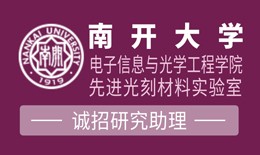当前位置:
X-MOL 学术
›
Rev. Aquacult.
›
论文详情
Our official English website, www.x-mol.net, welcomes your
feedback! (Note: you will need to create a separate account there.)
Impacts of Global Warming on Quality of Male Fishes: Evidence From A Meta-Analysis of Temperature Effects on Sperm Motility Kinematics
Reviews in Aquaculture ( IF 8.8 ) Pub Date : 2024-08-28 , DOI: 10.1111/raq.12961
Yu Cheng 1 , Jinhai Wang 2 , Sayyed Mohammad Hadi Alavi 1, 3 , Songpei Zhang 1 , Zuzana Linhartová 1 , Deepali Rahi Roy 1 , Nururshopa Eskander Shazada 1 , Borys Dzyuba 1 , Otomar Linhart 1
Reviews in Aquaculture ( IF 8.8 ) Pub Date : 2024-08-28 , DOI: 10.1111/raq.12961
Yu Cheng 1 , Jinhai Wang 2 , Sayyed Mohammad Hadi Alavi 1, 3 , Songpei Zhang 1 , Zuzana Linhartová 1 , Deepali Rahi Roy 1 , Nururshopa Eskander Shazada 1 , Borys Dzyuba 1 , Otomar Linhart 1
Affiliation
Studies have demonstrated adverse effects of global warming on aquatic ecosystems. However, the effects of increased water temperature (IWT) on fish reproduction are still doubtful in species spawning at low or high temperatures. In this meta-analysis, we elucidated the effects of global warming on spermatozoa functions, key determinants of male fertility. We recruited 245 data records from 20 studies spanning 20 cold- and warm-water fishes to identify the effects of IWT on sperm quality. Data were re-processed and re-analyzed to determine the overall effects of IWT on sperm kinetics such as percentage of motile spermatozoa (MOT), duration of spermatozoa motility (DSM), curvilinear velocity (VCL), straight line velocity (VSL), average path velocity (VAP), as well as on enzymatic activities for energy supply (EAES) and antioxidant enzyme activity (ANEA). The standardized mean difference was calculated for each study, with positive values indicating higher performance under IWT. Results showed that (a) the overall effect size for MOT was larger negative in cold-water fishes (−1.22) than in warm-water fishes (−0.95). (b) Each 1°C increase in the activation medium reduced MOT by 1.30% (cold-water fishes) and 3.47% (warm-water fishes). (c) IWT negatively affected DSM, decreasing it by 10 s (cold-water species) and 5.64 s (warm-water species) per degree of IWT. (d) Spermatozoa velocity (VCL and VSL) increased by IWT in warm-water species. (e) In cold-water species, IWT-induced detrimental effects on EAES were associated with adverse impacts on sperm motility kinetics. In conclusion, IWT negatively affects sperm motility kinetics, suggesting an impact of global warming on fish reproduction.
中文翻译:

全球变暖对雄鱼质量的影响:来自温度对精子运动学影响的荟萃分析的证据
研究表明,全球变暖对水生生态系统有不利影响。然而,在低温或高温下产卵的物种中,水温升高 (IWT) 对鱼类繁殖的影响仍然值得怀疑。在这项荟萃分析中,我们阐明了全球变暖对精子功能的影响,这是男性生育能力的关键决定因素。我们从 20 项研究中招募了 245 条数据记录,涵盖 20 种冷水鱼和温水鱼,以确定 IWT 对精子质量的影响。对数据进行重新处理和重新分析,以确定 IWT 对精子动力学的总体影响,例如运动精子百分比 (MOT)、精子运动持续时间 (DSM)、曲线速度 (VCL)、直线速度 (VSL)、平均路径速度 (VAP),以及能量供应的酶活性 (EAES) 和抗氧化酶活性 (ANEA)。计算每项研究的标准化平均差异,正值表示 IWT 下的性能较高。结果表明,(a) 冷水鱼 (-1.22) 的 MOT 总体负效应量大于温水鱼 (-0.95)。(b) 活化培养基每升高 1°C,MOT 就会降低 1.30%(冷水鱼)和 3.47%(温水鱼)。(c) IWT 对 DSM 产生负面影响,每度 IWT 降低 10 秒(冷水物种)和 5.64 秒(温水物种)。(d) IWT 在温水物种中增加精子速度 (VCL 和 VSL)。(e) 在冷水物种中,IWT 诱导的对 EAES 的不利影响与对精子活力动力学的不利影响有关。总之,IWT 对精子活力动力学产生负面影响,表明全球变暖对鱼类繁殖有影响。
更新日期:2024-08-28
中文翻译:

全球变暖对雄鱼质量的影响:来自温度对精子运动学影响的荟萃分析的证据
研究表明,全球变暖对水生生态系统有不利影响。然而,在低温或高温下产卵的物种中,水温升高 (IWT) 对鱼类繁殖的影响仍然值得怀疑。在这项荟萃分析中,我们阐明了全球变暖对精子功能的影响,这是男性生育能力的关键决定因素。我们从 20 项研究中招募了 245 条数据记录,涵盖 20 种冷水鱼和温水鱼,以确定 IWT 对精子质量的影响。对数据进行重新处理和重新分析,以确定 IWT 对精子动力学的总体影响,例如运动精子百分比 (MOT)、精子运动持续时间 (DSM)、曲线速度 (VCL)、直线速度 (VSL)、平均路径速度 (VAP),以及能量供应的酶活性 (EAES) 和抗氧化酶活性 (ANEA)。计算每项研究的标准化平均差异,正值表示 IWT 下的性能较高。结果表明,(a) 冷水鱼 (-1.22) 的 MOT 总体负效应量大于温水鱼 (-0.95)。(b) 活化培养基每升高 1°C,MOT 就会降低 1.30%(冷水鱼)和 3.47%(温水鱼)。(c) IWT 对 DSM 产生负面影响,每度 IWT 降低 10 秒(冷水物种)和 5.64 秒(温水物种)。(d) IWT 在温水物种中增加精子速度 (VCL 和 VSL)。(e) 在冷水物种中,IWT 诱导的对 EAES 的不利影响与对精子活力动力学的不利影响有关。总之,IWT 对精子活力动力学产生负面影响,表明全球变暖对鱼类繁殖有影响。



































 京公网安备 11010802027423号
京公网安备 11010802027423号